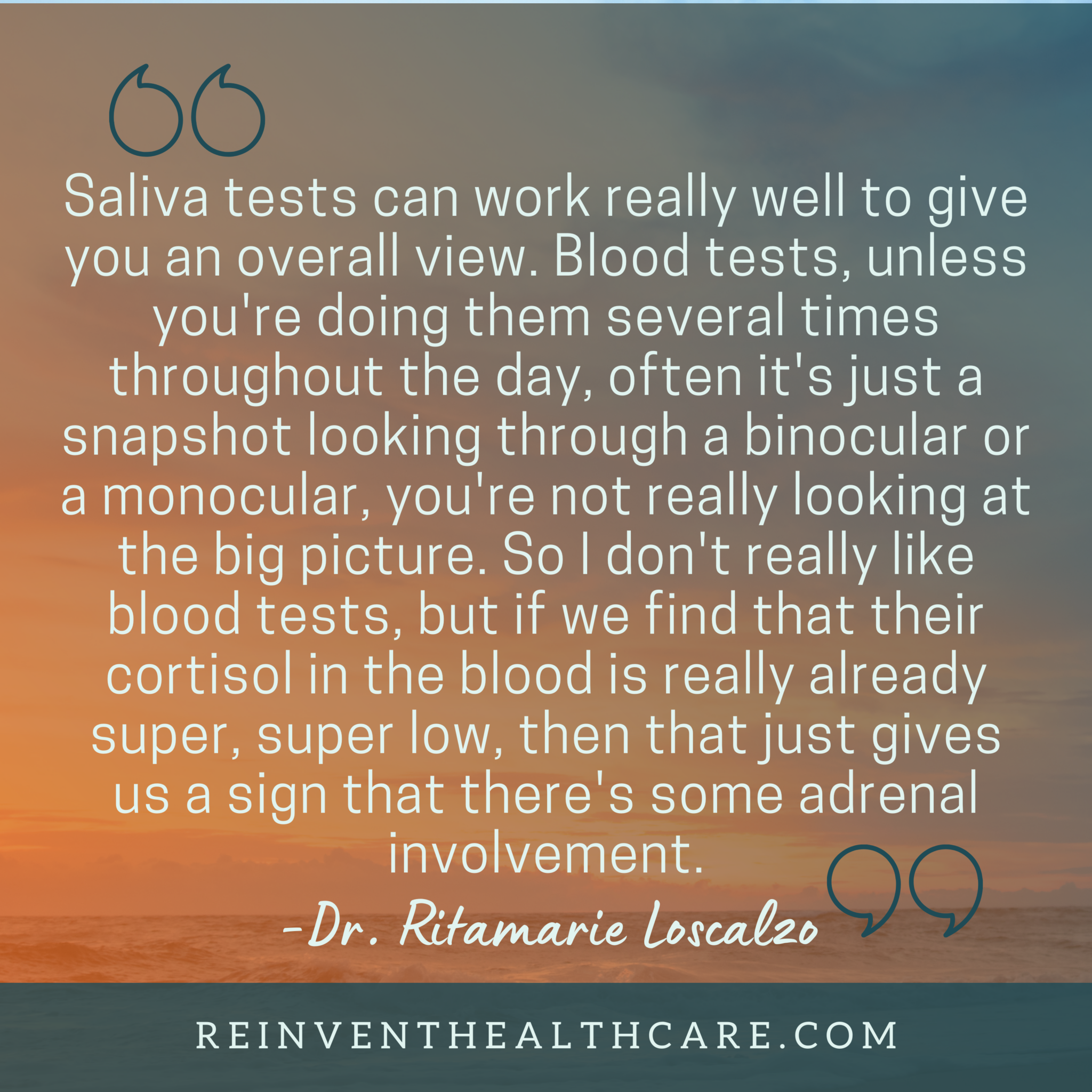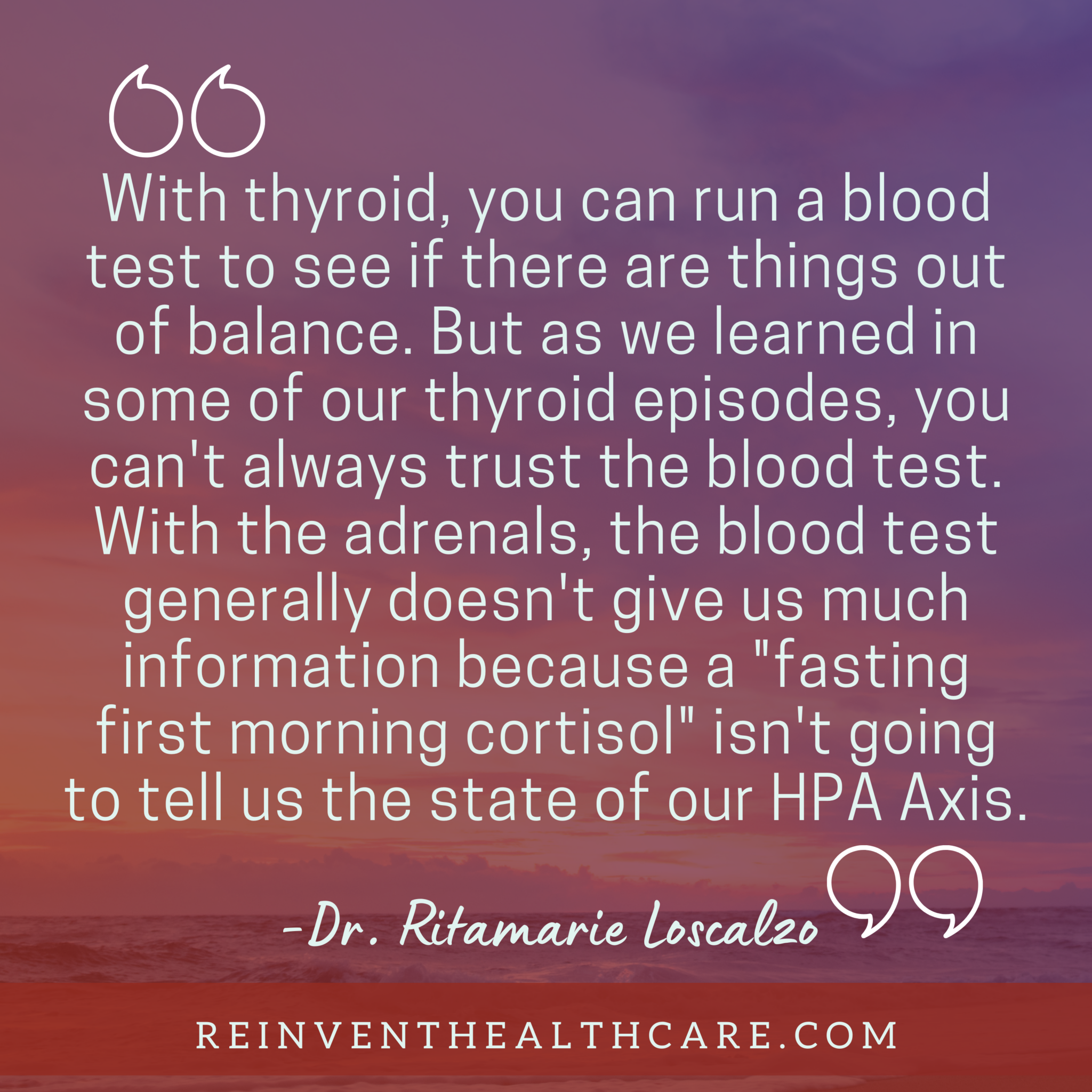Adrenal FAQs
IN THIS EPISODE:
The Difference Between Adrenal and Thyroid Symptoms
Adrenal dysfunction is often characterized by a tired and wired presentation, with individuals experiencing tiredness at certain times of the day and an inability to turn off their racing thoughts and fall asleep. Thyroid symptoms, on the other hand, tend to be more consistent throughout the day. Other differentiating factors include blood pressure levels (low in adrenal dysfunction, high in thyroid conditions) and the presence of constipation (more common in thyroid conditions).
Testing For Adrenal Dysfunction
While blood tests can be useful for assessing thyroid function, they are not as informative for evaluating adrenal function. Fasting first morning cortisol levels, commonly measured in blood tests, don't provide a comprehensive picture of the state of the HPA (hypothalamic pituitary adrenal) axis. Alternative tests such as saliva tests and Dutch tests, which analyze cortisol levels at different times of the day and examine metabolites, can provide more valuable insights into adrenal function.
Exercise Recommendations for Adrenal Health
It's important not to overtax the system when recommending exercise for individuals with HPA axis dysfunction. Lighter forms of exercise such as stretching, yoga, swimming, walking, and light weights are generally better suited to their condition. Starting with small amounts of exercise and gradually increasing intensity based on individual tolerance is recommended. It's crucial to avoid exercises that leave them excessively exhausted and in need of several days of recovery.
RESOURCES:
- Read through our FREE Resource Adrenal Guide.
- Get our FREE Guide to Taking a Detailed Health History that gets you to root causes with ease.
- Access Additional Resources for Practitioners ready to improve clinical outcomes through our Nutritional Endocrinology Practitioner Training.
- Watch our recorded Thyroid Adrenal Workshop here.








